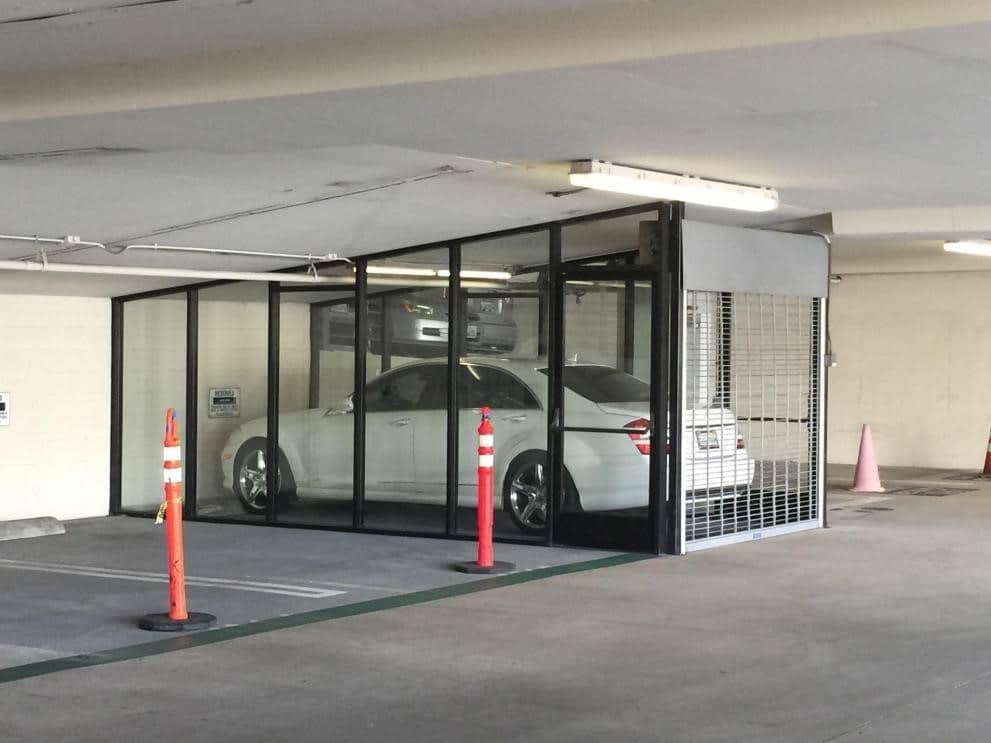
Save costs with Solvinity's Oracle Database Hotel
The licensing of Oracle databases can be an expensive proposition when using virtualisation techniques like VMWare or Hyper-V. For organisations that have run into this problem, Solvinity has developed a solution: the Oracle Database Hotel. This hosting platform specially designed for Oracle Database Hosting offers the flexibility of a virtualised platform without the extra licensing fees.
Why an Oracle Database Hotel?
We can best illustrate the stumbling block of licensing for a virtualised platform using the example of a parking garage. A parking garage has a certain capacity, for example 32 parking spots. When you drive into a garage, you choose a vacant parking slot. The next time you visit the parking garage, you again choose a vacant slot. It might be the same slot you parked in before, but if it is taken, you choose a different one.
A server also has a certain capacity, for example 32 CPU cores. Certain processes are carried out on the server that also assigns the so-called process scheduler to the CPU cores. The process scheduler receives a computing request and assigns it to a free CPU core to carry out the task. When a new request comes in, that request is also assigned to a free CPU core.
The big difference is that while in the parking garage you pay for that one slot where you parked you car, Oracle assumes that every CPU where the Oracle code can be implemented must be licensed. That would be the same as paying per visit for each parking slot in the garage, when you only need one space, simply because of the possibility to park in each vacant slot. For that reason, Oracle databases are often installed on designated hardware, isolated from the rest of the platform, and stripped down to what is necessary in order to limit the number of licenses required.

The solution
Now imagine that you cannot freely choose any parking slot, but that you are assigned a specific spot. That is a possibility. Oracle has a number of designated systems and technologies that only require you to license the number of CPUs that you need. These are listed in Oracle’s Hard Partitioning Policy. At Solvinity, we use both hardware and software from this policy, which means we can host databases more favourably. In comparison with the parking garage, it would look something like the photo below.
In reality, such a situation is not likely to occur often in a parking garage – but it would in a hotel. In the same way that you are assigned a room in a hotel and do not just choose a random bed, we ensure that the Oracle code can only be implemented on the CPU cores that have been purchased under license. That is why we call our solution a ‘Database Hotel’.
The Database Hotel is available for multiple datacentres on both SPARC and Intel servers, which allows us to find the best alignment with our clients‘ wishes. We use the Solaris 11.4 Operating System with the so-called ‘kernel zones’ installed. Additionally, the SPARC portion is further optimized for Oracle database workloads. This means specific tasks can be processed using hardware accelerators and in most cases fewer CPU cores are needed.
Accessible, flexible, compliant at a lower cost
With this platform, we offer a high availability environment where we can host Oracle databases in a compliant manner at a lower cost. The platform is optimized so that most clients can get by with fewer licenses. In addition, it is possible to host databases in a flexible way, whereby we can easily implement changes to the ‚zones’, the virtual servers on that platform.
Other advantages of Solvinity’s Oracle Database Hotel:
- Minimal downtime due to outages: if a server that hosts a database fails, that database is usually unavailable until the server is restored or replaced. This often takes up precious time. At our Database Hotel, you will not be affected by this, because it is composed of multiple nodes. When a server fails, the zones can simply be started on reserve capacity, which means downtime is kept to a minimum.
- Separate test and production environments without extra costs: if you would like a testing environment that is completely isolated from production, you usually need an extra server that has its own CPUs and licenses. In the Database Hotel, we can set up an extra zone that uses the exact same CPU as production, which means no extra license fees.
- Dynamic expansion on CPUs: expanding CPUs can in many cases be done dynamically, which often requires a re-start for physical nodes.
- Host-level database isolation: many organisations choose to run a number of databases on the same server, simply because it is licensed. At Solvinity, you can run databases on the same CPU but keep the host technically isolated. This isolation offers extra security between, for example, a testing and a production environment.
Solvinity and Solaris

Other articles
More
In die Cloud abheben mit einem gut laufenden Entwicklungsmotor
Für viele Unternehmen ist die schnelle Entwicklung neuer Software der Schlüssel für eine gesunde digitale Zukunft....
READ MOREVom Logging zur Wertschöpfung
Log Management ist einer der Secure Managed Services, den Solvinity ihren Kunden anbietet. Was bedeutet Logging...
READ MOREVerbessern Sie Ihre Resilienz mit Continuous Hardening
Niemand ist unverletzlich. Aber eine gute IT-Infrastruktur muss in jedem Fall gegen die bekanntesten und am...
READ MORE
